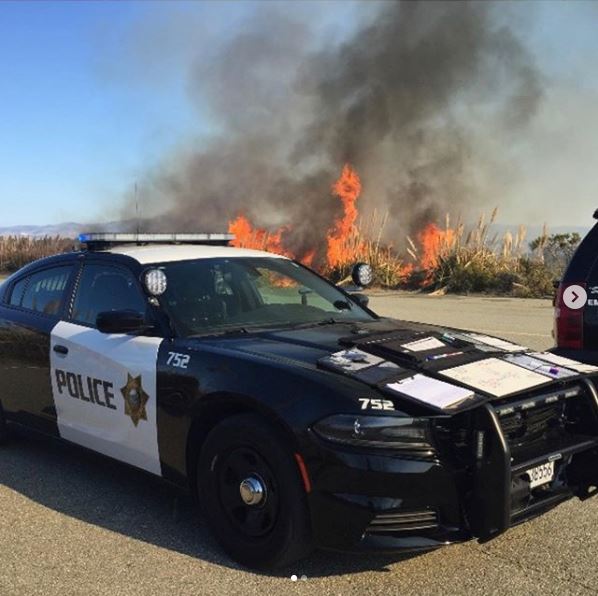News Information
- Published
- November 1, 2021
- Department/College
- Announcement, Safety and Security, University News
- News Type
The CALFIRE California Climate Investments Fire Prevention Program Grant will fund fire prevention around campus and east campus housing.
/filters:quality(75)/41x0:1879x1080/prod01/channel_2/media/csumb/legacy/legacy-news/RiverFire-ByKenFolsom3.jpg)
One of the attractive features of CSUMB’s campus and its East Campus housing is the intermingling with the natural landscape of trees, forests, brush, fields, plants, wildflowers and grasses.
That proximity to nature is referred to by the U.S. Forest Service as the Wildland Urban Interface, where human development intermixes with wilderness, but that also makes this area vulnerable to the threat of wildfire.
To mitigate against that, CSUMB has a Campus Community Wildfire Protection Strategic Plan in place, authored by University Police Department’s Emergency Manager Ken Folsom.
The first step begins with prevention, and CSUMB has taken a significant step in that direction by applying for, and being granted, a $275,000 California Climate Investments Fire Prevention Program grant from CAL FIRE.
“Just because we had some rain, it doesn’t mean we’re not at risk,” Folsom said. “We are still under a drought condition and the wildland is still very dry for now.”
The grant provides funds to create defensible space and reduce fire fuel around homes. That includes things like having 30 feet of clearance and grass cutting, pruning branches that are touching homes, removing dry leaves and pine needles from yards, roofs and gutters creating a 100-foot perimeter that hampers the spread of fire.
“The perimeter is not a 100-foot clear cutting of all trees and vegetation,” said Folsom. “It’s trimming trees and brush to Cal Fire protection standards.”

A University Police Department vehicle next to a Blanco Road fire in 2019
To protect against roadside fires, the work includes removing dead trees and brush up to 30 feet along roads, and trimming trees to reduce fire spread.
The work will be done in compliance with state codes under the direction of a biologist or certified arborist, with consultation of CSUMB science faculty and consultants. The timeline has been laid out to have as little environmental impact as possible, taking into account animal habitats, sensitive flora, and when plants have gone to seed.
“A lot of thought went into how to manage the threat of wildfires while reducing impacts to the many species that make our campus special,” said Anya Spears, CSUMB’s associate director of Regional Environmental Planning. “The campus plans to use best management practices and prescriptive measures such as conducting work at specific times of the year and avoiding certain areas.”
In the past, the county has brought in herds of goats to graze in the woodsy corridor around InterGarrison Road. Folsom says they won’t be utilized because they don’t eat the dead plants that contribute to fire fuel.
CAL FIRE is providing almsot $138 million in funding for 105 local fire prevention projects across California as part of a strategy to reduce the size and severity of wildfires. This is the first time CSUMB has obtained this grant; the work is expected to begin in February.